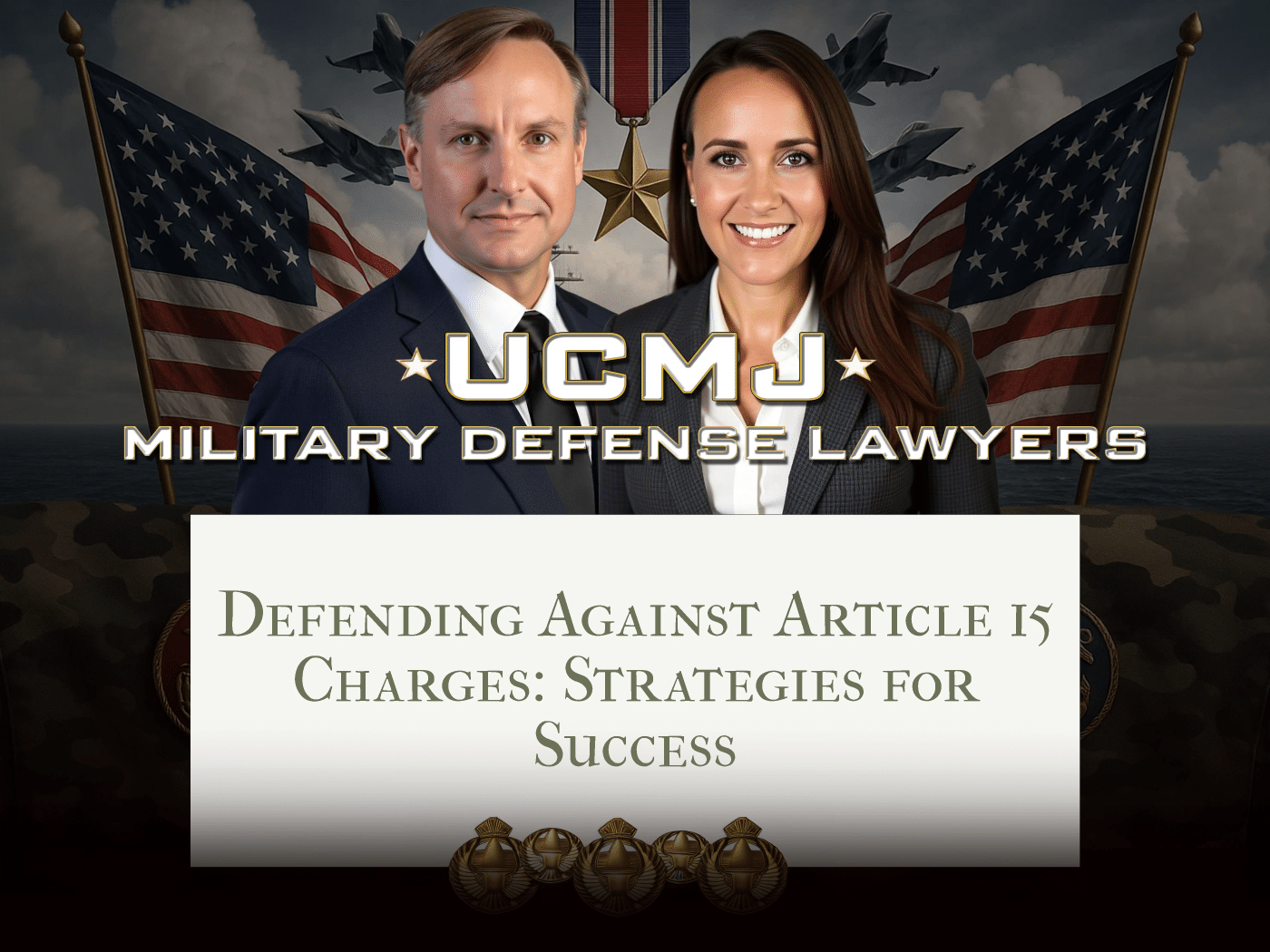Facing Article 15 charges can be an overwhelming and confusing experience for service members. Whether it’s your first encounter with military disciplinary action or you’ve been through the process before, the fear and uncertainty can feel all-consuming. That’s where a strong Article 15 Defense becomes essential. These proceedings can have long-lasting implications for your career, reputation, and even your personal life. Understanding your rights, the process, and your legal options gives you the best chance at a fair outcome. We know how difficult it is to face allegations, especially in a military environment where the stakes are high and the pressure is intense. In this article, we’ll walk you through the essentials of defending yourself against Article 15 charges, explain why it matters, and offer practical advice you can use right away. Whether you’re currently under investigation or simply want to be informed, this guide will help you navigate the challenges ahead.
Understanding What Article 15 Defense Involves
Article 15 of the Uniform Code of Military Justice (UCMJ) allows commanders to address misconduct administratively, without sending the service member to court-martial. This typically involves non-judicial punishment (NJP) and can include penalties such as extra duties, restrictions, rank reduction, or forfeiture of pay. An Article 15 Defense is a legal strategy aimed at protecting the rights and future of the accused service member through the appropriate legal channels.
For example, if a soldier is accused of being absent without leave (AWOL), the commander may initiate Article 15 proceedings. The soldier then has the right to consult with defense counsel and may accept or refuse the Article 15, opting for court-martial instead. Another case might involve insubordination, where a service member chooses to defend themselves within the Article 15 process by presenting evidence and calling witnesses to support their version of events. Understanding your legal options is crucial to mounting a strong defense.
Why the Right Defense Strategy Really Matters
Making the right decisions during an Article 15 proceeding can mean the difference between maintaining your military career and losing important benefits, promotions, or even your active-duty status. A strong defense can mitigate or eliminate penalties, but failing to act wisely can leave a lasting stain on your service record.
The stakes in Article 15 cases are not just legal—they’re deeply personal. Poor outcomes can damage morale, affect your reputation with peers and commanders, and restrict future career opportunities. Here are a few scenarios and their consequences:
- Scenario 1: A soldier accepts Article 15 without understanding their rights and receives a rank reduction, affecting future pay and promotion potential.
- Scenario 2: A service member refuses legal assistance and is unable to correct false accusations during the proceedings, resulting in restrictions and loss of privileges.
- Scenario 3: A Marine contests the Article 15 without adequate evidence or preparation and ends up with an unfavorable entry on their service record, which could later affect Veteran Affairs benefits.
How the Article 15 Defense Process Works Around the Globe
- Step 1: The commanding officer notifies the service member of the alleged misconduct and their intent to pursue Article 15 action. You’ll receive a formal charge sheet outlining the accusations.
- Step 2: The service member decides whether to accept the Article 15 or request a court-martial trial. Consulting legal counsel at this stage is critical to making an informed choice.
- Step 3: If accepting the Article 15, the member presents their defense during a hearing. This includes calling witnesses, submitting evidence, and making statements in mitigation.
Helpful Tips for Navigating the Article 15 System Successfully
Top Questions About Article 15 Defense Around the World
How Gonzalez & Waddington Can Help During Article 15 Proceedings
Gonzalez & Waddington is a nationally recognized law firm focused on military defense. With deep experience navigating the complexity of Article 15 proceedings, their attorneys offer personalized attention, strategic guidance, and aggressive representation. They understand the unique pressures of military life and work tirelessly to ensure that your rights are protected. Whether you’re stationed stateside or overseas, they can support your defense through comprehensive consultations and representation tailored to your branch and specific charges. From gathering evidence to preparing rebuttals, Gonzalez & Waddington helps give clients peace of mind during one of the most stressful experiences of their military careers. If you’re seeking an experienced legal team to help preserve your future, they are ready to assist you every step of the way.


